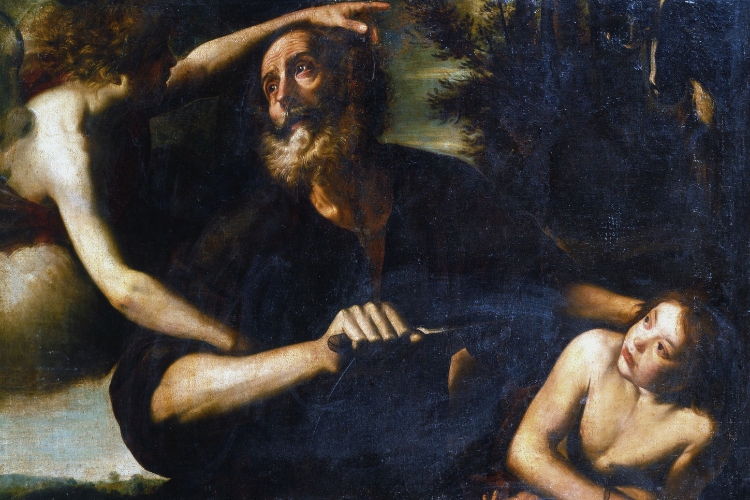The concept of hope is deeply embedded in the fabric of biblical theology, offering believers a steadfast anchor amidst life’s trials and tribulations.
In this blog post guide, we will find the biblical meaning of hope, tracing its roots in Hebrew scripture, examining its manifestation in the lives of key biblical figures, and exploring its transformative impact on Christian life and eschatology. Together, we’ll explore the essence of hope as outlined in the Bible and uncover why it is a vital aspect of the Christian faith.
Key Takeaways
- Hope in the Bible is rooted in the Hebrew words ‘qawa’ and ‘tiqwa’, signifying a trustful and expectant waiting on God’s promises.
- Biblical figures like Abraham and Simeon exemplify hope as unwavering faith in God’s word, even against seemingly impossible odds.
- In the New Testament, hope is distinguished from wishful thinking and is described as a confident expectation based on God’s faithfulness.
- Christian living is deeply influenced by hope, which inspires endurance, courage, and a dedication to service and good deeds.
- Hope in the Christian eschatological perspective is centered on the anticipation of Christ’s return and the promise of eternal life.
Understanding Hope in Biblical Context
The Hebrew Roots of Hope: Qawa and Tiqwa
In the Old Testament, the concept of hope is deeply rooted in the Hebrew language and carries a profound significance.
The verb qawa and the noun tiqwa, both derived from the same root, encapsulate the essence of hope in biblical terms. Unlike the modern usage of ‘hope’ as mere wishful thinking, these Hebrew words convey a sense of trust and patient expectation.
- Qawa is often translated as ‘to hope’ but also implies ‘to trust,’ as seen in Jeremiah’s declaration that God is the hope of Israel, signifying that God is worthy of trust.
- Tiqwa similarly translates to ‘hope’ but also means ‘trust.’ It is used in conjunction with qawa to express a confident anticipation in God’s faithfulness.
The interplay of these terms in scripture highlights that biblical hope is not passive but an active, confident waiting on God. It is a hope that anchors the soul, providing stability and assurance amidst life’s uncertainties.
Hope as Trust and Expectation in God’s Promises
In the biblical narrative, hope is not a passive wish but a dynamic and active trust in God’s faithfulness. This trust is not unfounded; it is rooted in the historical record of God’s promises and their fulfillment. Believers are encouraged to hold onto this hope as an anchor for the soul, firm and secure (Hebrews 6:18-19).
Hope in the Bible is characterized by an unwavering confidence in God’s word, despite the circumstances. It is a forward-looking assurance that God will do as He has said.
The essence of biblical hope lies in its certainty, which is based on the character of God. It is not merely an emotional state but a theological stance that influences behavior and outlook. The following points illustrate the nature of hope as trust and expectation:
- Hope is a response to God’s promises, as seen in the life of Abraham.
- It is intertwined with trust, often paralleled with taking refuge in God.
- Hope is courageous, prompting believers to bold action and endurance.
- It is expectant, looking forward to the fulfillment of God’s promises, such as the return of Christ.
By embracing hope, believers are not only comforted but also compelled to live in a manner that reflects their anticipation of God’s faithfulness.
The Transformational Power of Hope in Believers’ Lives
The transformational power of hope is evident in the lives of those who follow Christ. Hope, deeply rooted in the promises of God, encourages believers to adopt a new perspective on life. It is not merely about waiting for future blessings but about experiencing a profound change in how one lives in the present.
- Hope encourages a shift from a temporal to an eternal outlook.
- It instills joy, boldness, and a sense of purpose.
- Hope leads to a sanctifying effect, prompting believers to live pure lives.
Hope is not a passive waiting but an active engagement with life’s challenges, seen through the lens of God’s character.
Hope is also a vital characteristic that distinguishes believers from non-believers. It is a source of strength that enables Christians to face a wide variety of challenges with confidence and resilience. The hope that comes from God has the power to stimulate good works, as it assures us that our labor in the Lord is not in vain.
Biblical Figures and the Essence of Hope
Abraham’s Hope Against Hope: A Model of Faith
Abraham’s experience as described in Romans 4:18, “In hope against hope he believed,” serves as a profound example of unwavering faith.
Despite his advanced age and the barrenness of Sarah, Abraham clung to the promise of God that he would become the father of many nations. This was not a passive waiting but an active trust that shaped his entire existence.
The essence of Abraham’s hope lay in the certainty of God’s word, not in the visible circumstances. His hope was not a fleeting emotion but a steadfast anchor, deeply rooted in the divine promise.
Abraham’s journey of hope can be distilled into several key insights:
- Hope is a response to God’s promises, not to our external conditions.
- True hope requires a belief that goes beyond the boundaries of human possibility.
- The fulfillment of hope often comes through a process that tests and strengthens faith.
By embracing hope as Abraham did, believers are called to a life that mirrors this patriarch’s legacy—a life marked by a confident expectation in the faithfulness of God.
Simeon and Anna: Expectant Hope in the Messiah
The biblical account of Simeon and Anna exemplifies the profound sense of expectant hope that characterized the faithful of Israel.
Simeon, a righteous and devout man, was promised by the Holy Spirit that he would not see death before he had seen the Lord’s Messiah. His life was a testament to the hope that is rooted in divine assurance, a hope that culminated in the recognition of Jesus as the awaited Savior during the presentation at the Temple (Luke 2:25-26).
Anna, a prophetess who had dedicated her life to worship and fasting, also awaited the redemption of Jerusalem. Upon encountering the infant Jesus, she immediately understood the fulfillment of the prophecies and spoke of Him to all who were looking forward to the redemption (Luke 2:36-38).
Their hope was not a passive state but an active, living expectation that moved them to recognize and proclaim the Messiah when He appeared.
Hope in the biblical sense is more than mere wishful thinking; it is an active, confident expectation based on the promises of God. It is this kind of hope that Simeon and Anna embodied, a hope that is both patient and alert, ready to respond when God’s promises come to fruition.
The lives of Simeon and Anna remind us that hope is not abstract but deeply personal, intertwined with faith and the anticipation of God’s action in history. Their example encourages believers to maintain a hopeful outlook, grounded in the certainty of God’s word and the work of the Holy Spirit.
The Role of the Holy Spirit in Cultivating Hope
The Holy Spirit plays a pivotal role in nurturing hope within the hearts of believers. Hope is not merely a feeling but a divine gift, infused into our lives by the Spirit’s power. This hope is characterized by a profound trust in God’s promises, leading to an overflow of joy and peace as described in Romans 15:13.
Hope, as imparted by the Holy Spirit, is more than an abstract concept; it is a tangible experience of God’s love, providing believers with the assurance and confidence to face life’s challenges.
The presence of the Holy Spirit signifies a transformation in the believer’s life, where hope becomes a hallmark of their faith. This hope is not passive but active, prompting the believer to live in a state of expectant anticipation. The following points highlight the Holy Spirit’s role in cultivating hope:
- The Holy Spirit causes hope to abound through His power.
- Devotion to Christ and the indwelling Spirit give certainty to our hope.
- The Spirit’s presence in our hearts is a testament to the reality of hope.
- Hope is a gift that encompasses confidence, joy, peace, power, and love.
Recognizing the Holy Spirit’s influence, believers are called to live in awareness of the hope that defines their identity in Christ. It is this hope that sets them apart, marking them as children of God and bearers of His promise.
The Nature of Hope in the New Testament
Hope as a Response to the Promises of God
In the New Testament, hope is intimately connected with faith in the promises of God. It is not a passive wish but an active stance of expectancy, grounded in the trustworthiness of God’s word.
For instance, Abraham’s hope was not based on his circumstances but on the firm belief that God would fulfill His promises, despite any human impossibility.
- Hope engenders perseverance, as seen in Romans 15:4, which tells us that the Scriptures give us hope.
- The Holy Spirit plays a crucial role, as Romans 15:13 describes how His power causes hope to abound.
- Hope is also linked to joy, boldness, and comfort, influencing our conduct and interactions with others.
Hope can be as strong as our knowledge of God’s goodness and faithfulness, reflecting the Spirit’s presence in our lives.
Ultimately, hope in the Bible is an expectation and anticipation that rests not on the unknown but on the known character of God. It is a hope that leads to action, to living in awareness of the promises yet to be fulfilled.
The Distinction Between Hope and Wishful Thinking
In the biblical sense, hope is fundamentally different from wishful thinking. Wishful thinking is often characterized by a desire for a certain outcome without any guarantee or assurance of its fulfillment.
It is a passive longing that may lack a solid foundation or a clear path to realization. In contrast, biblical hope is active and confident, grounded in the steadfast promises of God.
- Wishful Thinking: A desire without assurance
- Biblical Hope: A confident expectation based on God’s promises
Hope in the Bible is not a mere crossing of fingers; it is a secure anchor for the soul, steadfast and sure.
The hope that scripture speaks of carries with it the weight of divine assurance. It is not a blind leap into the unknown, but a step taken in the light of God’s faithfulness. This hope is not static; it propels the believer forward, infusing their journey with purpose and direction.
Hope as an Anchor: The Metaphor of Hebrews 6:18-19
In the heart of the New Testament, Hebrews 6:18-19 presents a vivid image of hope as an anchor for the soul, both sure and steadfast.
This metaphor encapsulates the essence of Christian hope, which is not a fleeting emotion but a secure and immovable trust in the promises of God. It is this hope that enters ‘within the veil’, signifying a deep, personal connection with the divine.
The anchor of hope is not merely a symbol but a profound truth that believers hold onto. It is the certainty that, despite life’s storms, there is something unshakeable at the core of our faith.
The role of hope in the believer’s life is multifaceted, providing not only comfort but also moral direction. As the apostle John notes, hope has a purifying effect, prompting individuals to align their actions with the purity of Christ.
The intertwining of hope with trust is evident throughout the scriptures, with figures like Abraham exemplifying the steadfastness that comes from unwavering belief in God’s word.
- Hope inspires courage and boldness.
- It is a response to God’s promises, leading to action.
- Hope is faith projected into the future, a dynamic force in the believer’s journey.
Living Out Hope in the Christian Life
Hope’s Influence on Christian Conduct and Endurance
In the Christian life, hope is not merely a feeling; it is a driving force that shapes behavior and sustains perseverance.
Hope encourages believers to view their present circumstances through the lens of God’s promises, fostering a perspective that transcends the immediate challenges. This forward-looking mindset is crucial for enduring trials and maintaining godly conduct.
- Hope prompts purity, as believers anticipate Christ’s return and strive to be ‘as he is pure’ (1 John 3:3).
- It stimulates good works, knowing that efforts in the Lord’s service are ‘not in vain’ (1 Cor 15:58).
- Hope also cultivates joy, boldness, and comfort, empowering Christians to face adversities with confidence.
The perseverance of saints is deeply rooted in the transformative power of hope. It is the assurance of things not yet seen that anchors the soul, enabling believers to press on despite obstacles.
Hope’s versatility allows it to adapt to various life situations, always pointing back to the steadfast character of God. It is this hope that assures us of our ‘strong position’ as ones ‘seated in the heavenly realms’ (Ephesians 2:6), secure in the victory Christ has won.
The Interplay of Hope and Courage in the Believer’s Journey
In the life of a believer, hope and courage are deeply intertwined. Hope is not a passive waiting but an active and dynamic force that propels the faithful forward.
It is the courage to face the unknown, the strength to endure trials, and the confidence to act upon God’s promises. The apostle Paul encapsulates this sentiment, noting that hope is courageous and leads to boldness in speech.
- Hope is expectant, looking forward to the fulfillment of God’s promises.
- It leads to joy, boldness, and a foundation for faith and love.
- Hope is comforting, offering encouragement through the knowledge of the resurrection.
Hope is the proper response to the promises of God, inspiring believers to hold fast to their faith even when circumstances seem bleak.
The journey of faith is marked by moments where hope fuels courage, enabling believers to persevere. It is in these moments that the true essence of Christian hope is revealed, as it becomes the motivation for action and the source of unyielding strength.
Hope as the Motivation for Service and Good Deeds
In the Christian life, hope serves as a profound motivator for service and good deeds. This hope is not a passive waiting but an active engagement in the work of the Kingdom, inspired by the certainty of God’s promises.
The New Testament is replete with exhortations to let hope shape our actions and character.
- Hope sanctifies: It purifies believers, aligning them with the purity of Christ (1 John 3:3).
- Hope stimulates: It encourages the abundant doing of the Lord’s work, with the assurance that such labor is not in vain (1 Corinthians 15:51-58).
- Hope transforms: It changes perspectives, leading to a life lived in anticipation of eternal abundance and joy.
Hope is courageous and expectant, driving believers to be zealous for good deeds as they await the return of Christ (Titus 2:13-14).
The essence of hope in the believer’s life is not just about personal comfort or joy; it is about being propelled into action. Hope leads to boldness, faith, love, and comfort for oneself and others. It is a source of encouragement that allows Christians to exult in the prospect of sharing God’s glory, even as they engage in the humble service of others.
Hope’s Ultimate Fulfillment: The Eschatological Perspective
The Blessed Hope: Anticipating Christ’s Return
The concept of the blessed hope refers to the joyful anticipation of Jesus’ return, a cornerstone of Christian eschatology. This hope is not merely a wish but a confident expectation rooted in the promises of God. Believers are encouraged to live in a state of readiness, embodying the values of the kingdom they await.
The blessed hope shapes the Christian’s outlook, infusing life with purpose and direction. It is a hope that is both transformative and sustaining, offering comfort amidst trials and a steadfast focus on the eternal.
- The blessed hope is a source of joy and encouragement.
- It motivates purity and good works among believers.
- It is a central theme in the teachings of the apostles.
The New Testament is replete with references to this hope, urging believers to remain vigilant and hopeful for the day of Christ’s return. It is a hope that is beneficial and brings happiness, as it promises a future where believers will be united with Christ in glory.
The Role of Hope in Sustaining Believers Through Trials
In the midst of trials, hope serves as a beacon for believers, guiding them through the darkest valleys. Hope is not merely a feeling but a discipline, a conscious choice to trust in God’s faithfulness despite the circumstances.
It is through hope that Christians can find the strength to endure, knowing that their trials are not in vain but are a means through which God refines their faith.
- Hope encourages steadfastness and patience, as seen in Romans 5:3-4 and 1 Thessalonians 1:3.
- It transforms our perspective, allowing us to see beyond the present struggles to a future filled with abundance and joy.
- Hope leads to joy, boldness, and comfort, reminding us of the resurrection and the glory that awaits (Romans 12:12, 2 Corinthians 3:12, 1 Thessalonians 4:18).
Hope is the proper response to the promises of God, anchoring us in the assurance that He is at work even in our trials.
As believers cling to hope, they echo the faith of Abraham, who ‘against all hope, believed’ (Romans 4:18), and they are empowered by the Holy Spirit to abound in hope (Romans 15:13). The testimony of enduring hope is a powerful witness to the world, demonstrating that God is infinitely valuable and that His promises are sure.
Eternal Life as the Culmination of Christian Hope
In the Christian faith, eternal life represents the ultimate fulfillment of hope. This is not a hope that is frail or perishable, but one that is living and enduring, promising a future beyond the temporal constraints of this world.
Believers are sustained by the assurance that what awaits them is an inheritance incorruptible, reserved in heaven, guarded by the power of God through faith.
The whole glory of the Christian vocation is centered on this hope, which is not just a distant dream but a present reality that shapes the believer’s life and perspective.
The New Testament frames this hope as a certainty, grounded in the resurrection of Christ and the promise of His return. It is a hope that is both a comfort in trials and a motivation for holy living.
The anticipation of eternal life compels Christians to look beyond the immediate to the eternal, where the most profound experiences of this life pale in comparison to the joys to come.
- The Nature of Christian Hope: Living and enduring
- The Assurance: An incorruptible inheritance
- The Guard: By God’s power through faith
- The Motivation: Holy living and comfort in trials
As believers peer through the lens of eternity, they find their actions, desires, and very purpose aligned with the promise of what God has prepared for those who love Him. This eschatological perspective is not just about waiting; it is about living in the light of a hope that transforms every aspect of the Christian journey.
Conclusion
Throughout this exploration of hope in the Bible, we have seen that hope is far more than mere wishful thinking; it is a steadfast trust in God’s promises and a confident expectation of His faithfulness.
From the Old Testament’s anticipation of the Messiah to the New Testament’s assurance of eternal life through Jesus Christ, hope remains a central theme.
It is the anchor for the soul, providing courage, boldness, and joy amidst life’s trials. As believers, we are called to embrace this divine hope, allowing it to transform our lives and sustain us as we await the fulfillment of God’s redemptive plan. In essence, Biblical hope is not just a concept but a profound truth that empowers us to live with purpose and anticipation of God’s unwavering goodness.
FAQ;
What is the biblical definition of hope?
In the Bible, hope is defined as a confident expectation and desire for something good in the future. The Old Testament verb ‘qawa’ and the noun ‘tiqwa’ both mean ‘to trust and wait expectantly,’ reflecting a deep trust in God’s promises and a waiting for their fulfillment.
How is hope different in the Bible compared to modern usage?
In modern culture, hope often implies wishful thinking without certainty. In contrast, biblical hope is a secure trust and expectation based on God’s character and promises, not on uncertain desires.
What role does hope play in the lives of biblical figures like Abraham and Simeon?
Hope in the lives of biblical figures like Abraham and Simeon is characterized by a firm trust in God’s promises despite circumstances. Abraham believed God would fulfill His promises even in old age, and Simeon and Anna awaited the Messiah’s coming with expectant hope.
How does hope influence the behavior and actions of believers according to the Bible?
Hope influences believers to live with endurance, courage, and a zeal for good deeds. It motivates them to adhere to Christian conduct, face trials with courage, and serve others, as it is rooted in the anticipation of Christ’s return and the fulfillment of God’s promises.
What is the ‘blessed hope’ mentioned in the Bible?
The ‘blessed hope’ refers to the eagerly awaited return of Jesus Christ, as mentioned in Titus 2:13. It is the culmination of Christian hope, encompassing the expectation of eternal life, the resurrection, and the ultimate redemption of believers.
How does the Holy Spirit relate to hope in the Christian experience?
The Holy Spirit is a source of hope, empowering believers to abound in hope through His power. The Spirit helps Christians to trust in God’s promises and provides the inner assurance and strength needed to endure life’s challenges with a hopeful outlook.








